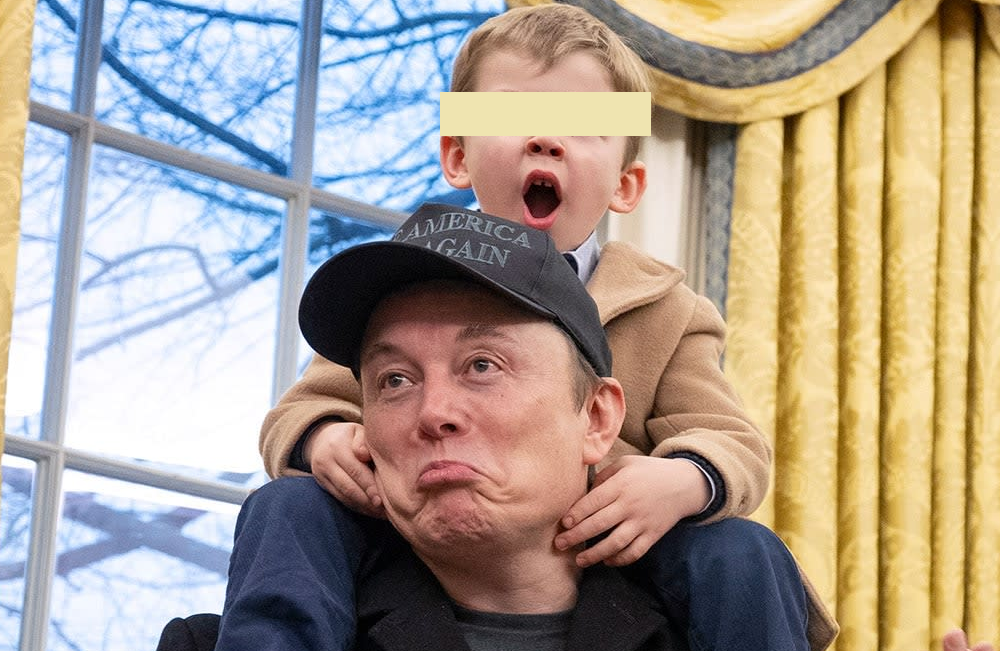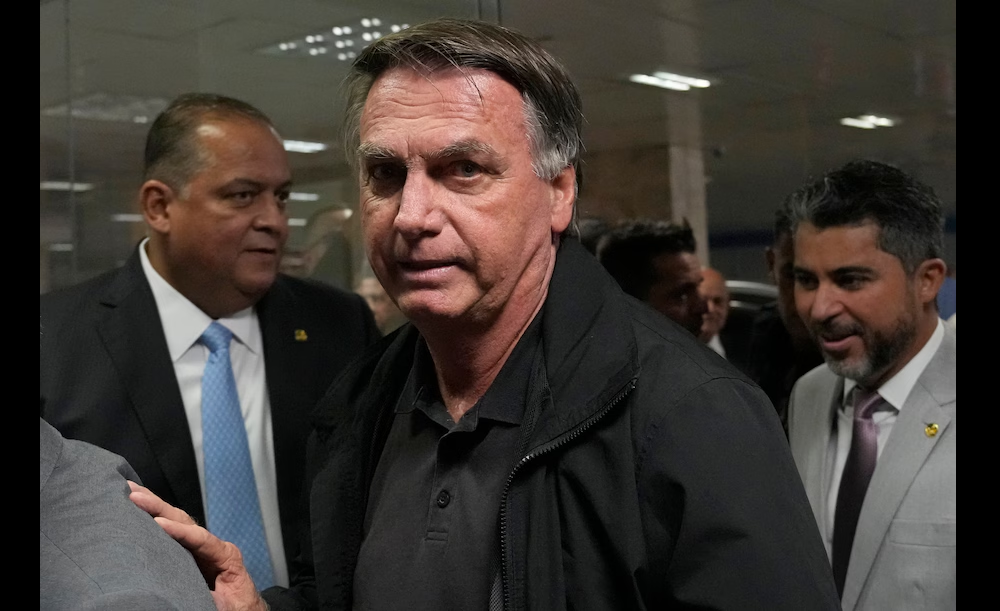Why does Maga world hate Europe?
Guy Chazan in New York FT© 05-06-2025
Late last month, the US Department of State published an essay accusing Europe of waging an “aggressive campaign against western civilisation itself”.
Some dismissed it as a sophomoric prank. The author, Sam Samson, was a little-known adviser to secretary of state Marco Rubio who only graduated from college in 2021. That his post appeared on the department’s official substack account made the sceptics think again.
Samson’s essay, which accused European governments of “backsliding” on democracy and having “weaponised political institutions against their own citizens”, laid bare the deepening ideological rift between President Donald Trump’s administration and the EU.
It is an estrangement with implications for the future of the western alliance, and could be on show when Germany’s chancellor Friedrich Merz meets Trump in Washington on Thursday.
“Even if this is just messaging to the base . . . language like this out in the public space changes the transatlantic relationship,” said Constanze Stelzenmüller, who directs the Center on the US and Europe at the Brookings Institution think-tank.
Merz is hoping to discuss Germany’s pledge to spend more on defence and ways to resolve the US-EU trade dispute. He may instead face questions over the recent decision by German domestic intelligence to classify the far-right Alternative for Germany (AfD) as an extremist organisation — a move that triggered howls of protest from vice-president JD Vance and Rubio.
“That’s not democracy — it’s tyranny in disguise,” Rubio said on X in early May. “What is truly extremist is not the popular AfD — which took second in the recent election — but rather the establishment’s deadly open border immigration policies that the AfD opposes.”

Friedrich Merz, pictured, is to meet Donald Trump in Washington on Thursday © Reuters
Trump has long had a visceral mistrust of the EU, which he says was created to “screw” the US. His advisers have now turned that resentment into an ideology that is being disseminated publicly with a confidence that has sent a chill through European capitals.
The bloc is quickly becoming the latest front in a culture war Trump has unleashed against the bastions of liberalism. Most of his targets — elite universities, government agencies such as USAID, public broadcasters — have been domestic.
But the Samson essay shows Maga’s ambitions go much further and the movement is now prepared to deploy far beyond America’s borders.
“The people around Trump took his vague hatred of Europe and made it part of the overall struggle against liberal America,” said Jeremy Shapiro, research director at the European Council on Foreign Relations think-tank.
The state department did not immediately respond to a request for comment.
This ideological conflict is intensifying at a particularly sensitive time. The EU is facing complex negotiations with the US on trade, defence and security as it seeks to avert a transatlantic trade war while keeping Washington committed to Europe’s defence and engaged on Ukraine.
The culture war on Europe risks becoming the “background music” for those talks, said Stelzenmüller.
Casting doubt on Europe’s democratic credentials is “red meat” to the president’s Maga base, said Stephan Bierling, professor of international politics and transatlantic relations at the University of Regensburg. It also allows Trump to pose as a “democratic saviour”.
“Populists who take power and then try to impose authoritarian systems of government often stylise themselves as the real defenders of democracy,” Bierling said. “It’s using culture war to legitimise their own authoritarian power grab.”
Trump’s list of grievances against the EU is well-rehearsed and fits with his general disdain for supranational institutions. He has accused the bloc of failing to pay its fair share for defence, of running persistent trade deficits and imposing fines and pursuing antitrust investigations into US tech groups such as Facebook and Google.
Since returning to the White House his scepticism towards the western alliance has been on full display. He has hit the EU with 50 per cent tariffs — since suspended until July 9 — and exerted pressure on Nato ally Denmark to cede control of Greenland.
But the new anti-European ideology being developed by those around him runs much deeper. In their eyes, Europe is decadent and effete, lecturing the US on human rights and climate change while freeriding on America’s protective shield, at risk of becoming a “permanent security vassal of the United States”, in the words of Vance.
The vice-president has become the main spokesperson for this new hostility, telling the Munich Security Conference in February that Europe was “retreat[ing] from some of its most fundamental values”.

US vice-president JD Vance protested against the decision by Germany’s domestic intelligence to classify the far-right Alternative for Germany as an extremist organisation © AP
The biggest danger facing Europe was not Russia or China but the “threat from within” — curbs on free speech and interference in elections, he added.
It is not just the EU that has been targeted by Trump’s team. Officials have also trained their sights on the UK authorities for prosecuting anti-abortion activists, long a cause célèbre for the American religious right.
During a recent fact-finding mission to the UK, Samson met with the British activist Livia Tossici-Bolt, who was convicted in April of breaching a protection zone around an abortion clinic.
The state department’s bureau of democracy, human rights and labour, where Samson is a senior adviser, said it was “disappointed” with Tossici-Bolt’s conviction. “Freedom of expression must be protected for all,” it said.
The White House also reacted angrily to a court ruling in March that banned French far-right leader Marine Le Pen from standing for office for five years after she was convicted of embezzling EU funds.
“Exclusion of people from the political process is particularly concerning given the aggressive and corrupt lawfare waged against President Trump, here in the US,” said Tammy Bruce, the state department’s spokesperson.
The president’s team has gone further in recent months, not only defending rightwing politicians and parties they feel are being unfairly treated but directly intervening in national elections by openly campaigning for candidates from the hardline right.
In late May Kristi Noem, the homeland security secretary, travelled to Poland to urge voters to elect Karol Nawrocki, the candidate of the nationalist opposition Law and Justice (PiS) party ahead of the June 1 elections. She dismissed his rival, the Warsaw mayor Rafał Trzaskowski, as an “absolute train wreck of a leader”.
If Poles elected Nawrocki, “you will be that shining city on the hill that will make all of Europe turn and recognise that freedom is why we exist, freedom is what it’s all about”, she told delegates at the Conservative Political Action Conference in Jasionka. Nawrocki won the election.
For Trump’s team, the purpose of supporting such far-right candidates and parties is twofold, said Shapiro. “That can, in the first instance, undermine the broader liberal EU agenda,” which Trump and his allies see as inimical to US national interests, he said.
“But it can also create a new transatlantic relationship which is fundamentally illiberal,” he added. “And that’s a much deeper threat.”☀
Additional reporting by Anne-Sylvaine Chassany in Berlin
🟠________________________________________________ © நமது இணையத்தில் பதிப்புரிமைக் குறியிடப்பட்டுள்ள ஆக்கங்களை பகிர்வதற்கு, ஆக்கங்களின் அடியில் அல்லது வலது பக்கத்தில் உள்ள பகிர் குறி வழியாகக் காணப்படும் இணைப்புகளைப் பயன்படுத்தவும். ஆக்கங்கள் எவற்றையும் பகுதியாகவோ அல்லது முழுமையாகவோ நகலெடுப்பது enbweb.co `விதிமுறை- நிபந்தனை`கள் மற்றும் பதிப்புரிமைக் கொள்கையை மீறுவதாகும்.Please use the sharing tools found via the share button at the bottom or right side of articles. Copying articles in part or full to share with others is a breach of enbweb.co T&Cs and Copyright Policy. ENB Admin-நிர்வாகம் ______________________________________







